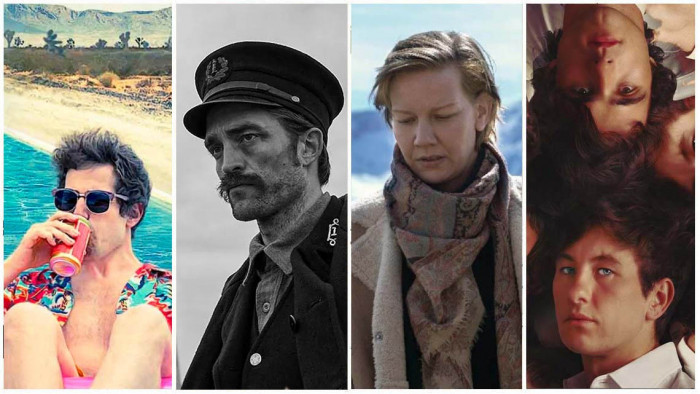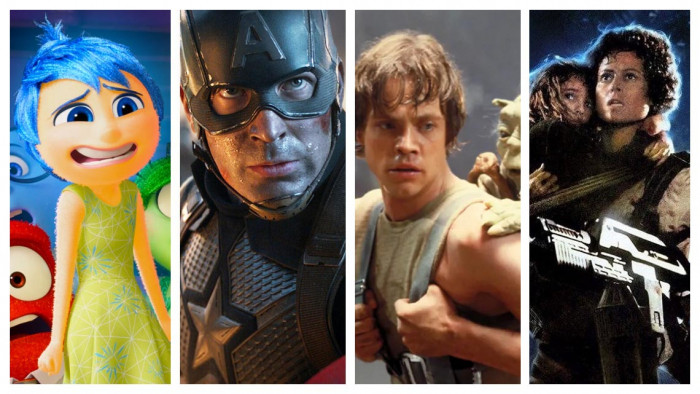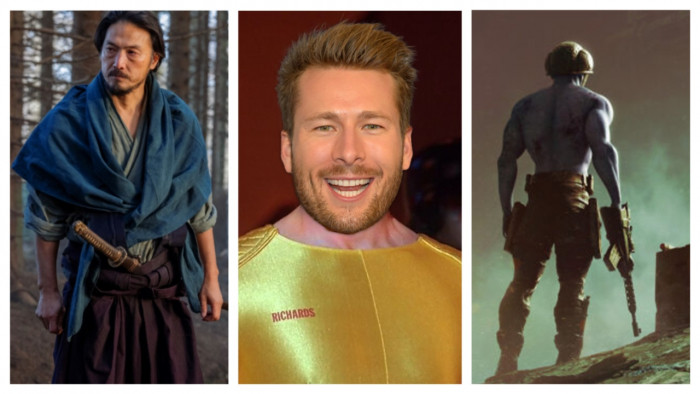The inside story of Kill Your Friends with John Niven
Killer Business. From music industry debauchery to film industry frustration, John Niven gives us the inside story...


From music industry debauchery to film industry frustration, John Niven gives us the inside story of the must-see movie adaptation of his novel, Kill Your Friends
I worked in the UK music industry for 10 years: from 1992 until 2002. In September 1992, fresh out of college, my cousin, Kevin Wilson, asked me to help him set up a little dance label out of the back of the record shop he ran in Glasgow, Bomba Records. We did pretty well. Ten years, and three major labels later, my last industry job was axed in a pub in Maida Vale and I was out the other end.
I worked first in press, then marketing, and finally in A&R, that bizarre alchemic end of the business concerned with producing hit records out of base materials. I was bad at all of these jobs but the Nineties, it turned out, was a time when you could pretty much get away with being bad at the job. For a while at least.
In those 10 years, I had, as they say, seen things you people wouldn’t believe. Parties at the top of the Chrysler Building in New York, boat trips up the Thames as we tried to sign the Spice Girls, Fire-eaters and jugglers in the corporate hospitality box when Oasis played Maine Road in Manchester. And enough drugs and drink to float a battleship or sink Oliver Reed.
Around 2005 I started the novel that would become Kill Your Friends. I finished it in 2007. Seventeen rejection letters later, it was finally published by William Heinemann and went on to become a best-seller. Now, this week, the movie is finally out. What a long, strange trip it’s been...
Related:Nicholas Hoult talks Kill Your Friends

Development Hell
In 2009, producers Gregor Cameron and Johnny Vaughn option the book and hire me to write the screenplay. They’ve done a lot of TV together (The Big Breakfast, Katy Brand’s Big Ass Show, Top Buzzer) but this will be their first feature. I go off and write the screenplay, delivering a draft we all agree on about a year later. Nothing happens for a while as we look for a director. Then both Gregor and I see a 90-minute BBC TV movie called Holy Flying Circus, about the religious furore around the release of Monty Python’s Life Of Brian. It’s brilliantly directed by Owen Harris. We send Owen the script and it turns out he’s already a fan of the book. Owen is in. We continue to try to put together cast and funding, I go off and write another novel (Straight White Male) and Owen directs an episode of Black Mirror and, like that, another year goes by.
One day in Hyde Park, Gregor sees Nicholas Hoult (About A Boy, A Single Man, Skins) walking along and doorsteps him with a copy of the screenplay. Nick later tells me he thought Gregor was probably just a nutter, but he reads the script and is intrigued. Fortuitously, Nick is a fan of the Black Mirror episode Owen directed and finally signs on.
We’re still struggling to raise all the money to make the film at this point. Enter British super-producer Will Clarke. Will has had a hand in producing everything from Dead Man’s Shoes to Four Lions to Filth. He partners up with Gregor and we get very close to going into production before the funding falls apart at the last minute.
The chips are very down and Gregor, Will and I have a crisis meeting in a Thai restaurant in Marylebone. During lunch Will says, “This is without doubt the most difficult project I have ever been involved in.” I sit there thinking, “Jesus Christ, you worked on Four Lions and this is the hardest thing ever?” Will fixes me with a steely glint and says, “John, we are going to make this fucking film if it kills me.”
Finally Len Blavatnik, Britain’s richest man and owner of Warner Music, steps up with more funding and, in February 2014, four years after I delivered the first draft, we are officially green lit.

Making The Film
April 2014 and I’m at Pinewood Studios, watching loads of sparks and carpenters build a recreation of the office I worked in nearly 20 years ago. It’s quite a heady rush, all this activity because you typed the words ‘INT. OFFICE – DAY’ on a piece of paper but, truth be told, movie sets are no place for a writer to be. You’ve done your bit and it’s time to hand it over to the director. Actors may come up and ask you for notes and you can’t get into doing that behind the director’s back. Essentially it’s like going to an orgy where you have to keep your hands to yourself. Also I have zero patience and film sets are an endurance test of patience and repetition. Owen, like many good directors, is a model of calm. The most outraged I ever see him on set is when he scratches his beard more intensely than usual.
There are many fun moments during filming, however: watching Nick Hoult and James Corden throw each other around the set in a deranged fight; three days of guerilla filming in New York, where we get very little sleep and a few minutes of great footage; recreating a northern nightclub at three in the morning at two in the afternoon in Camden Town; everybody smoking their heads off like it’s 1997 all over again. Then there is Moritz Bleibtreu’s appearance as German techno boss Rudi – an amazing performance where he does everything bar eat the scenery and leaves the whole cast and crew in stitches. Finally, after five weeks of intense beard-scratching, the film is in the can. Many months of post-production begin...
Selling The Product
Nowadays, when I hear stories about A-list actors throwing tantrums and smashing the place up because the tone of beige in their hotel suite wasn’t exactly what was agreed upon in their contract, I feel no shock or horror. I feel something closer to sympathy. Because – being deep in the middle of promoting a British indie movie myself – I can only imagine what the demands of promoting a colossal Hollywood movie are.
Joe Strummer once remarked that he nearly wept with recognition when he saw the scene in This Is Spinal Tap where Nigel Tufnel goes berserk when the bread does not fit the ham. Because, Strummer explained, when you are the lead singer in a band on tour, there is no stopping the demands. For interviews, for photos, to say hello to this person, to that person… As a human being you only have so much to give. But there’s no stopping the demands. So you boil over and end up throwing a fit because the peanuts aren’t the right kind.
Being a novelist by trade (and moonlighting as a screenwriter by night) I am a creature of habit and routine. A blissful week for me is one where you look at the diary on a Monday morning and the week ahead is completely, utterly blank. A week where I will try to get the day’s writing done by two o’clock so I can hit the golf course in the afternoon and be back to start dinner around six. It is a schedule that would have made the 25-year-old Kill Your Friends-era me set fire to myself with rage and boredom. But, like they say, when you’re in your twenties, if you’re in your pyjamas at 9pm on a Friday, you feel like you’re failing at life. In your forties, being in your pyjamas at 9pm feels like a total victory.
But when you have a book coming out, and even more so when you have a movie coming out, you look in the diary and see a horror show of black dots: engagements, obligations and travel. Fantasy Filmfest in Berlin, Toronto International Film Festival, Zurich Film Festival, Dinard, Toulouse, preview screenings and Q&As in Glasgow, Manchester and London. And in between all of that there are press days, phone interviews, pieces like this to be written, and all of the regular work to be done: novels to be written, screenplays to be rewritten, columns to be filed.
If, at this point, you are saying “You should be happy people want to know.” Or maybe, “Yeah, you’re not exactly down the mines, are you?” Or maybe just, “Fuck off, you wanker”, I ask only that you try to keep this in mind: no one becomes a writer (a real writer) because they love parading on a red carpet. Or because they love having their photograph taken (a particularly worthless activity, I find). Or because they love doing interviews. Most novelists are not nightclub acts. We are, in Martin Amis’ words, “most fully alive when alone”. To be perfectly frank, most of us would do the writing for free. It’s all this stuff that we get paid for.
Finally, at the end of October 2015, almost exactly 10 years after I began work on the novel of Kill Your Friends, the lights go down in the 500-seat theatre for the premiere of the movie. At this point people say, “You must be so excited!” The truth is the overwhelming feeling is one of relief.
Relief that Owen did such a great job of directing the film. That Nicholas Hoult was brave and talented enough to take on a role where he has to say appalling things about humanity every other minute. Relief that we put together such an incredibly talented young cast of supporting actors: Craig Roberts, Joseph Mawle, Ed Skrein, Georgia King, Dustin Demri-Burns, Tom Riley, Damien Molony… everywhere you look, in every scene, there is someone powerfully watchable.
But mostly I feel relief because very soon I won’t have to do any more promotion.
Kill Your Friends is in cinemas nationwide from 6 November
(Images: Liz McBurney/Rex/Studio Canal)
Latest
Related Reviews and Shortlists


The 10 best war movies of the 21st century








